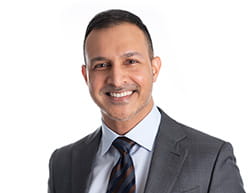With the combination of speed, decisiveness and commitment that only a highly-motivated and centrally-controlled economy can deliver, the government of the United Arab Emirates has, at a stroke, changed the game for employers, investors and low-paid workers across the UAE.
On 18 July, the Ministry of Human Resources and Emiratisation announced the extension of a decree, which requires employers to provide free housing for employees earning less than 2,000 dirhams (US$544) a month. Previously, the decree had only applied to employers with more than 500 employees, but the change extends the obligation to businesses with 50 or more employees.
"This is an extremely important development," says Abdul-Haq Mohammed, international managing partner at Trowers & Hamlins, "not just for key workers in the region, but also for investors too. We can see employers outsourcing accommodation through nomination agreements and the like."
This last point might be lost on some observers, who are content to see Dubai as the preserve of high-priced hotels, marina- side luxury apartments and mega-malls.
"There's no doubt that Dubai has been immensely successful," says Mohammed. "But there are still only a couple of locations in Dubai that could be considered institutional investment grade. To date, the focus has been on prestige developments, with less attention given to leases and long-term income streams. But with key worker housing, you need much longer leases and security for tenants. And that is considerably more attractive – even if the year-on-year returns might be lower – for the institutional investor class who are looking for reliability of income, not just quick capital growth.
As more and more sovereign wealth funds are created and investment houses set up, the need to create attractive and solid assets has become increasingly pressing. This is even more acute as political sentiment encourages these funds to invest more of their capital within the region."
Mohammed points to the granting of longer leases of up to 70 years in places like the Abu Dhabi Global Market district as a demonstration of a new attitude to real estate development in the region.
The change is just one piece of an increasingly-complex jigsaw as economies in the UAE and the other countries in the Gulf Co-operation Council (GCC) mature into fully-fledged modern economies.
There is a relentless logic to it all. Take Dubai, for instance. The Emirate is currently in the process of working towards Expo2020, and that means a huge expansion in the number of hotel and retail destinations. More hotels and shops mean more staff earning modest salaries, who not only need somewhere affordable to live but somewhere to send their kids to school, and affordable places to shop. The teachers at the new schools also need somewhere to shop and live, and they all need healthcare. And the healthcare workers need somewhere affordable to shop and live and so on.
"We are seeing developers getting on board, with more affordable projects aimed at the middle segment of the market being announced by real estate giants such as Emaar, Damac and Danube in the past 12 months" reports Bowtell. "We are also seeing more creative purchasing structures being offered to create opportunities for investors for whom investment in the market would otherwise be impossible."
"Throughout the region, we are also seeing a lot of focus on developing schools," says Sallie Bowtell, real estate partner in the firm's Dubai office. "A lot of teachers already live in provided accommodation, or get allowances, but there is massive demand for more reasonably-priced education services, and that is going to mean an expansion in housing for the teachers at those schools."
"Government's role is essential in this stage of development," says Mohammed.
"They have tried this before, setting up separate affordable housing arms of some of the bigger developers, but it was admitted that they had struggled to demonstrate the returns that investors have grown used to expecting. Driving these kinds of social infrastructure projects, with lower returns for developers, yes, but a more stable framework for investors, is going to be a matter of getting the policy right in the first instance and making sure it happens on the ground in the second. Government needs to get involved to change planning policy and introduce the kinds of planning conditions associated with the UK and Europe, where high-end development must be coupled with some 'community' benefit or contribution. But it's vital they do; the need is there right now."
Sustainable cities As development in the region starts to diversify, governments are running into some of the issues that are top of the agenda for planners in the West.
"There are some interesting developments coming online," says Bowtell
Pointing to Diamond Developers' Sustainable City, a 500-house residential complex with a 143-unit eco-hotel across 5m sq ft. Sustainable City's 3,000 residents benefit from 100% waste and water recycling, free solar-generated electricity, with greenhouses producing some food, and 10,000 trees in total.
Abu Dhabi's Masdar City, designed by Foster & Partners, is along similar lines, although has hit teething problems and is due for completion by 2030. Among Masdar City's innovations is the use of short streets (no longer than 230ft) which Foster's team, researching in the ancient cities of Cairo and Muscat, found create just enough wind turbulence to have a 'flushing' effect which cools those at pavement level.
"Governments and investors are going to have to adapt to changing conditions," says Mohammed, "but if you look how far the GCC states have come in such a short time-frame, we have every reason to think they'll not only do it, but come up with some interesting lessons for other countries as they do."
